43 mental health labels stigma
Removing Self-Stigma from Mental Health Labels | HealthyPlace Seems the word "mental" is unnecessary and redundant label. People can say cancer and relate, treat, and understand without additional labels. People can say depression, ADHD, anxiety and relate, treat, and understand without the word "mental" in front of illness or health. It only seems to create more stigma. Study: Language and Labels May Affect Mental Health Stigma February 3, 2016 • Contributed by Zawn Villines, GoodTherapy.org Correspondent. Using person-centered language, which avoids labeling people with mental health diagnoses, can reduce stigma and ...
Impact of Stigma About Mental Health Issues - Neurodiversity Matters Internal stigma is when people with mental illness believe the negative thoughts and stereotypes about themselves that are perpetuated by society. This type of stigma can be very damaging and lead to feelings of isolation and hopelessness. It can be an attribute, behavior, or reputation that is socially discrediting.

Mental health labels stigma
Beyond Labels: Reducing Health-Related Stigma | RTI Stigma has consequences. People who are stigmatized often feel ashamed and unworthy, resulting in self-stigma, lower self-esteem, and depression. Although the types of stigma may vary by health condition and across cultures, the effects are notably alike. People who experience health-related stigma also experience social isolation, poor quality ... 250 labels used to stigmatise people with mental illness - PMC The stigma against people with mental illness is a major barrier to help-seeking in young people for mental health problems. The objective of this study was to investigate the extent of stigma in relation to treatment avoidance in 14 year-old school students in England in relation to how they refer to people with mental illness. Methods Mental Health Labels And Stigma The Truth About Mental Health Labels and Stigma - The Mighty. Health (1 days ago) May is Mental Health Awareness Month. One thing that continues to be a difficulty with mental health is the stigma of having a mental illness (perceived or otherwise). For me, I used to believe that having a mental illness meant I had a label I couldn't shake; a ...
Mental health labels stigma. Labeling and Stigma (Chapter 29) - A Handbook for the Study of Mental ... Summary. This chapter begins with some background on how a consideration of these issues developed in mental health sociology. This selective review provides a frame for examining extant issues and evidence concerning labeling and stigma as they pertain to mental illnesses. The issues addressed are the conceptualization of labeling and stigma ... Diagnostic Labels, Stigma, and Participation in Research Related to ... Although a number of barriers that may be related to the stigma associated with dementia and MCI diagnostic labels arise at each stage of the research process, specific steps can be taken to reduce the impact of these barriers on the successful completion of research in this area. Stigmatizing Words, Labels | HealthyPlace When talking mental health, stigma refers to the misinformed perceptions and ideas about mental illness and those with it. It's a big component in why people feel ashamed to have a mental illness and suffer in silence instead of seeking mental health treatment and understanding that mental illness is just an illness. Mental Health Stigma: Society, Individuals, and the Profession Mental health stigma operates in society, is internalized by individuals, and is attributed by health professionals. This ethics-laden issue acts as a barrier to individuals who may seek or engage in treatment services. The dimensions, theory, and epistemology of mental health stigma have several implications for the social work profession.
250 labels used to stigmatise people with mental illness The stigma against people with mental illness is a major barrier to help-seeking in young people for mental health problems. The objective of this study was to investigate the extent of stigma in relation to treatment avoidance in 14 year-old school students in England in relation to how they refer to people with mental illness. This is a qualitative, cross-sectional study. Mental health stigma: Definition, examples, effects, and tips Mental health stigma refers to societal disapproval, or when society places shame on people who live with a mental illness or seek help for emotional distress, such as anxiety, depression,... Stigma, Prejudice and Discrimination Against People with Mental Illness Self-stigma refers to the negative attitudes, including internalized shame, that people with mental illness have about their own condition. Institutional stigma, is more systemic, involving policies of government and private organizations that intentionally or unintentionally limit opportunities for people with mental illness. Why is There so Much Stigma Surrounding Mental Illness? Mental health stigma stems from an array of factors and misconceptions including: The idea that people with mental illnesses are fundamentally "different" and weaker than than others Fear of being abandoned by people who aren't supportive of mental illness Stereotypes perpetuated by the media that portray mental illness in an uninformed light
Mental health labels can save lives. But they can also destroy ... Yes, there is stigma, but not the rampant sticky, staining discrimination one gets with diagnoses associated with serious mental illness. With the latter, diagnosis can produce what the... Reframing Mental Health Labels | NAMI: National Alliance on Mental Illness To make matters worse, mental health labels are often associated with stigma. For me, these labels represented my shame and the stigma of how others would perceive me. I let those letters degrade my sense of worth. I saw myself as unable to do things other people can. Mental health: Overcoming the stigma of mental illness Stigma is when someone views you in a negative way because you have a distinguishing characteristic or personal trait that's thought to be, or actually is, a disadvantage (a negative stereotype). Unfortunately, negative attitudes and beliefs toward people who have a mental health condition are common. Stigma can lead to discrimination. The stigma of mental illness: effects of labelling on public attitudes ... Labelling has practically no effect on public attitudes towards people with major depression. Conclusion: Our findings illustrate the need for differentiation, differentiation between the different components of stigma as well as differentiation between the various mental disorders. Publication types Research Support, Non-U.S. Gov't MeSH terms
Labeling of mental disorders and stigma in young people There were no significant associations between label use and the stigma components of "stigma perceived in others", "reluctance to disclose" and for the most part "social distance". Most mental health labels were associated with seeing the person as "sick" rather than "weak" and accurate psychiatric labels had the strongest effect sizes. However, for the psychosis vignette, the "dangerous/unpredictable" component was predicted by the labels "schizophrenia/psychosis", "mental illness" and ...
Mental illness stigma - dealing with stigma and how to reduce it ... In relation to mental illness, stigma is when someone is marked or discredited somehow, or reduced from being a whole person to being a stereotype or labelled as a collection of symptoms or a diagnosis (e.g. 'psychotic'). The meaning of the word stigma is a mark, a stain or a blemish.
Words have power: the stigma of labelling mental illness Mental Illness Labels and Young People. When a study was conducted to investigate how young people perceived mental illness and which words or labels they use or have heard applied to people living with mental illness, they came up with over 250 of them! The most frequently reported labels in this study included "disturbed", "nuts ...
Mental Health Stigma: Statistics, Causes, and Effects - BrainsWay Mental health stigma can develop when inaccurate information, fear, and assumptions come together. Stigma can be broken down but understanding how these elements contribute to adverse outcomes is the first step. Media Influence Media portrayals of mental health and substance use disorders are often misconstrued and sensationalized.
Stigma and discrimination | Mental Health Foundation Social isolation, poor housing, unemployment and poverty are all linked to mental ill health. So stigma and discrimination can trap people in a cycle of illness. You may face more than one type of stigma: for example, you may also be stigmatised because of your race, gender, sexuality or disability. This can make life even harder.
Mental Health Stigma is a Silent Killer - Ditch the Label Stigma, by dictionary definition is: "a mark of disgrace associated with a particular circumstance, quality or person.". There is a stigma surrounding mental illness that is having catastrophic affects on people's wellbeing. Stigma is the reason people lie about their wellbeing, or don't tell their families that they're struggling.
10 Myths and Stigmas About Mental Health | Dr Duany Regarding mental illnesses, stigma is the label applied to the individual who suffers from any of them, which generates negative reactions from the human being, as they can lose self-confidence, faith in their recovery, and the ability to lead a normal life.
Why Labels Can Be Harmful When You Have Mental Illness OCT. 20, 2021 By Cindy Tillory When you are young, society seems to hand out labels like candy on Halloween. Growing up, I was labeled "the Black kid," "the weirdo," "the nerd," "the fat kid." The world around me seemed to dole out these categories without a second thought, and I let them define me throughout my childhood.
Labels Hurt. Examining the Impact of Mental Health Stigma Jul 05, 2021 · Below are some of the harmful consequences associated with mental health stigma: Increased psychiatric symptoms and reduced prognosis. Reluctance to seek treatment or stick with it. Social isolation Lack of understanding by family, friends, coworkers, or others Fewer opportunities for work, school, social activities, or trouble finding housing
The Truth About Mental Health Labels and Stigma - The Mighty May 29, 2017 · May is Mental Health Awareness Month. One thing that continues to be a difficulty with mental health is the stigma of having a mental illness (perceived or otherwise). For me, I used to believe that having a mental illness meant I had a label I couldn’t shake; a label that defined me, that made me feel less. Inferior. Broken. Broken.
Mental Health Stigma: Examples of Everyday Discrimination A 2021 study explored the trends of mental health stigma in the United States over a period of more than 20 years, between 1996 and 2018. In the study, researchers reviewed surveys from across the ...
Mental Health Labels And Stigma The Truth About Mental Health Labels and Stigma - The Mighty. Health (1 days ago) May is Mental Health Awareness Month. One thing that continues to be a difficulty with mental health is the stigma of having a mental illness (perceived or otherwise). For me, I used to believe that having a mental illness meant I had a label I couldn't shake; a ...
250 labels used to stigmatise people with mental illness - PMC The stigma against people with mental illness is a major barrier to help-seeking in young people for mental health problems. The objective of this study was to investigate the extent of stigma in relation to treatment avoidance in 14 year-old school students in England in relation to how they refer to people with mental illness. Methods
Beyond Labels: Reducing Health-Related Stigma | RTI Stigma has consequences. People who are stigmatized often feel ashamed and unworthy, resulting in self-stigma, lower self-esteem, and depression. Although the types of stigma may vary by health condition and across cultures, the effects are notably alike. People who experience health-related stigma also experience social isolation, poor quality ...

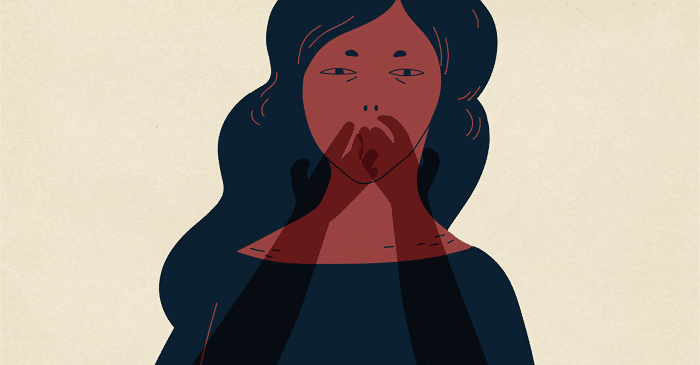



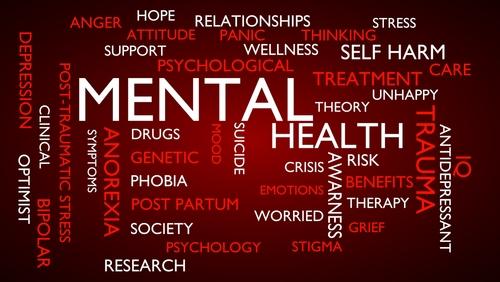

![PDF] Mental health stigma as social attribution: Implications ...](https://d3i71xaburhd42.cloudfront.net/4966bcb7daaa9b69d79fa42560fe2204ed4223b2/2-Figure1-1.png)
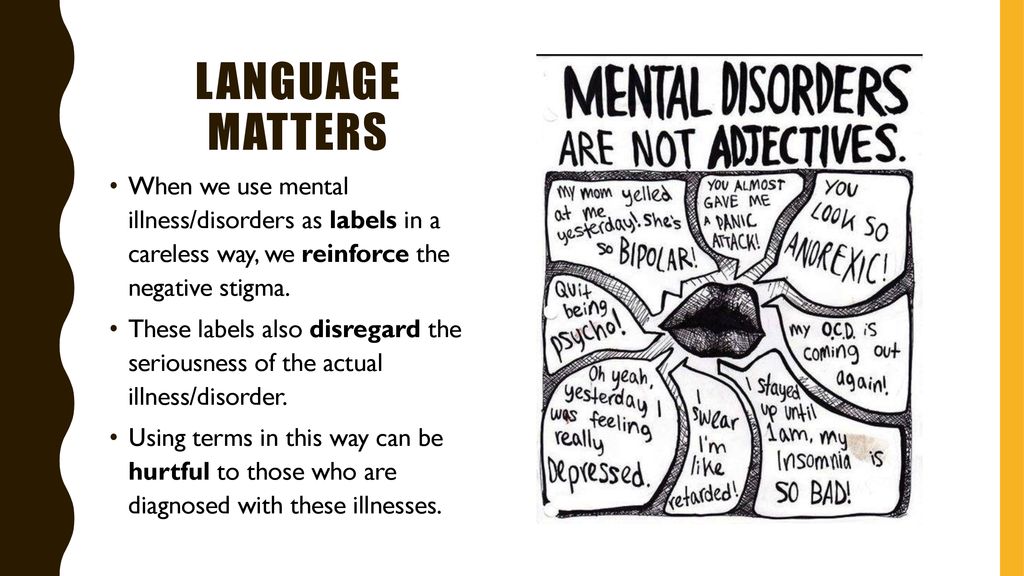


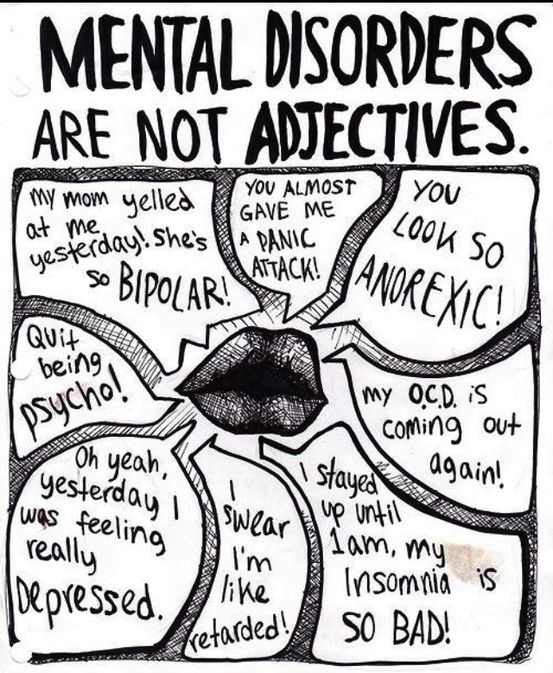
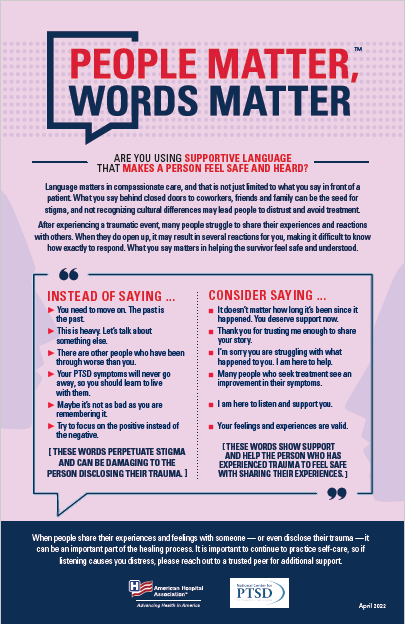
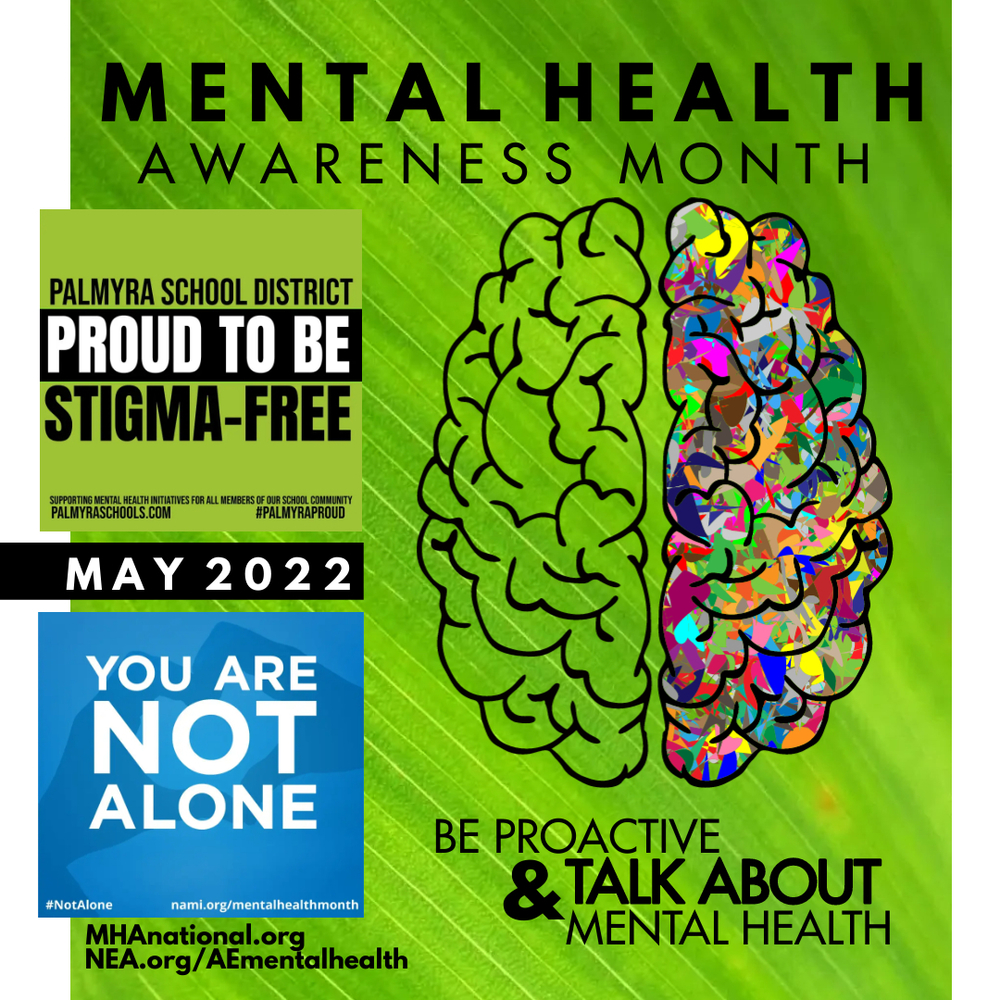
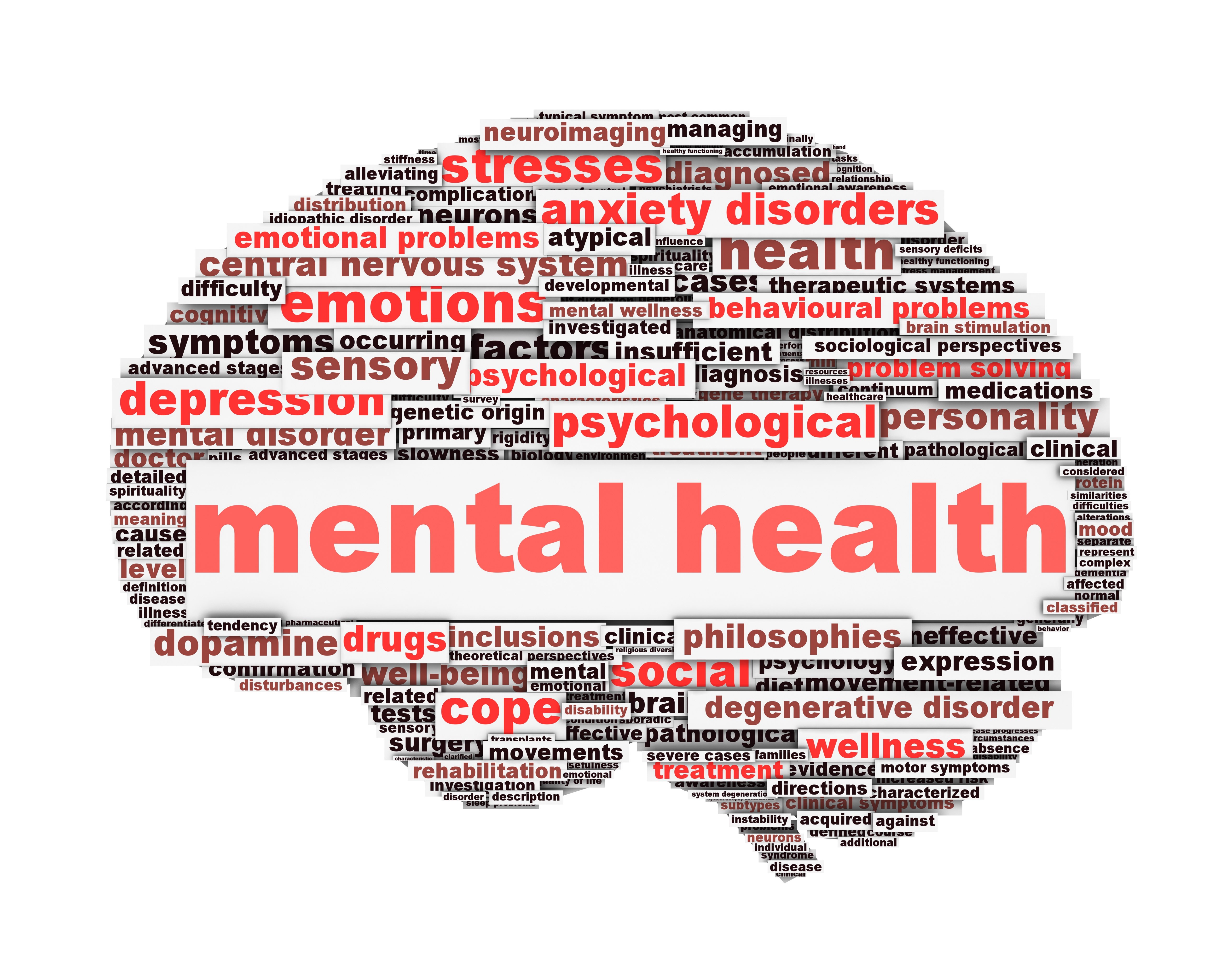
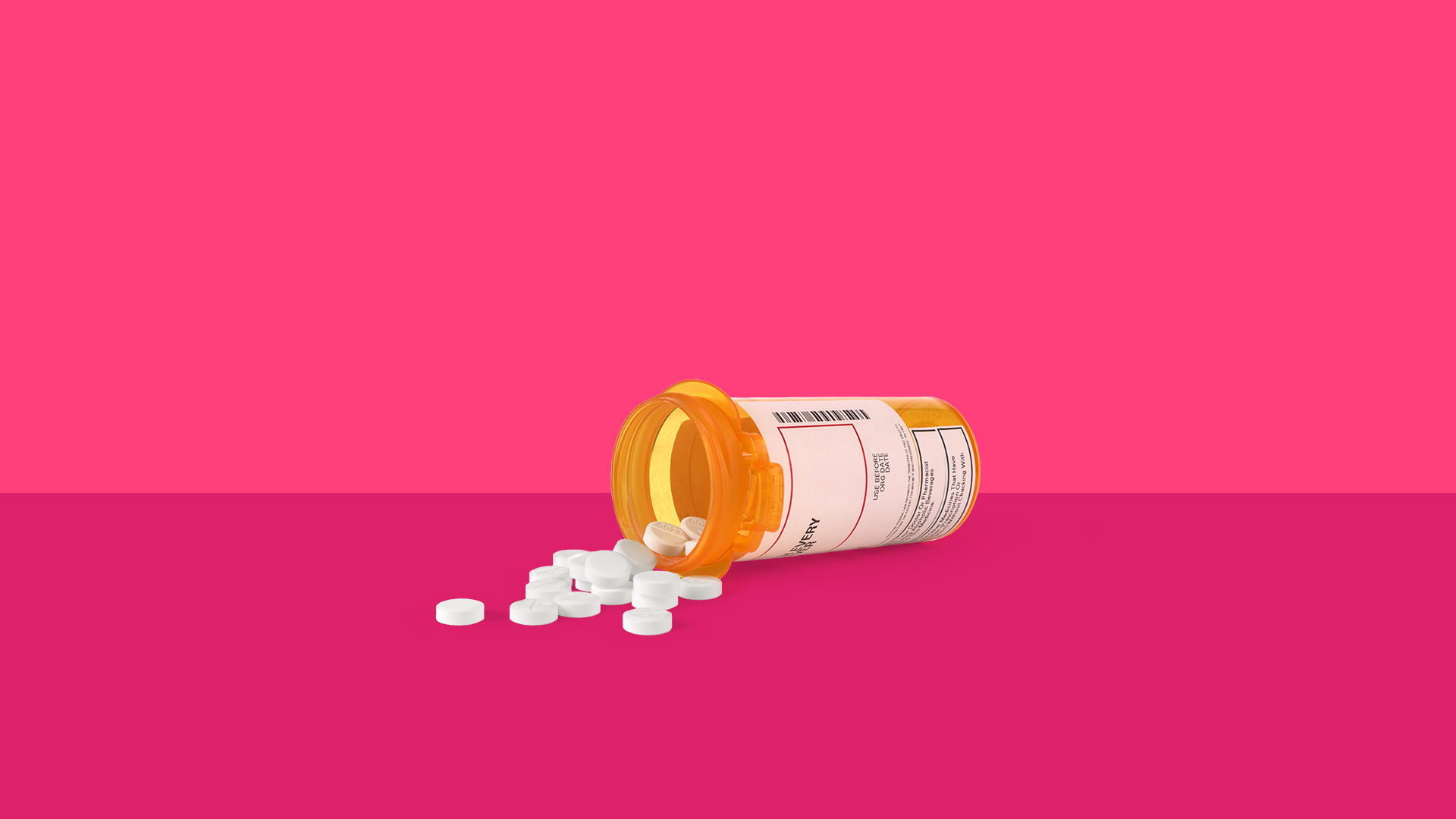

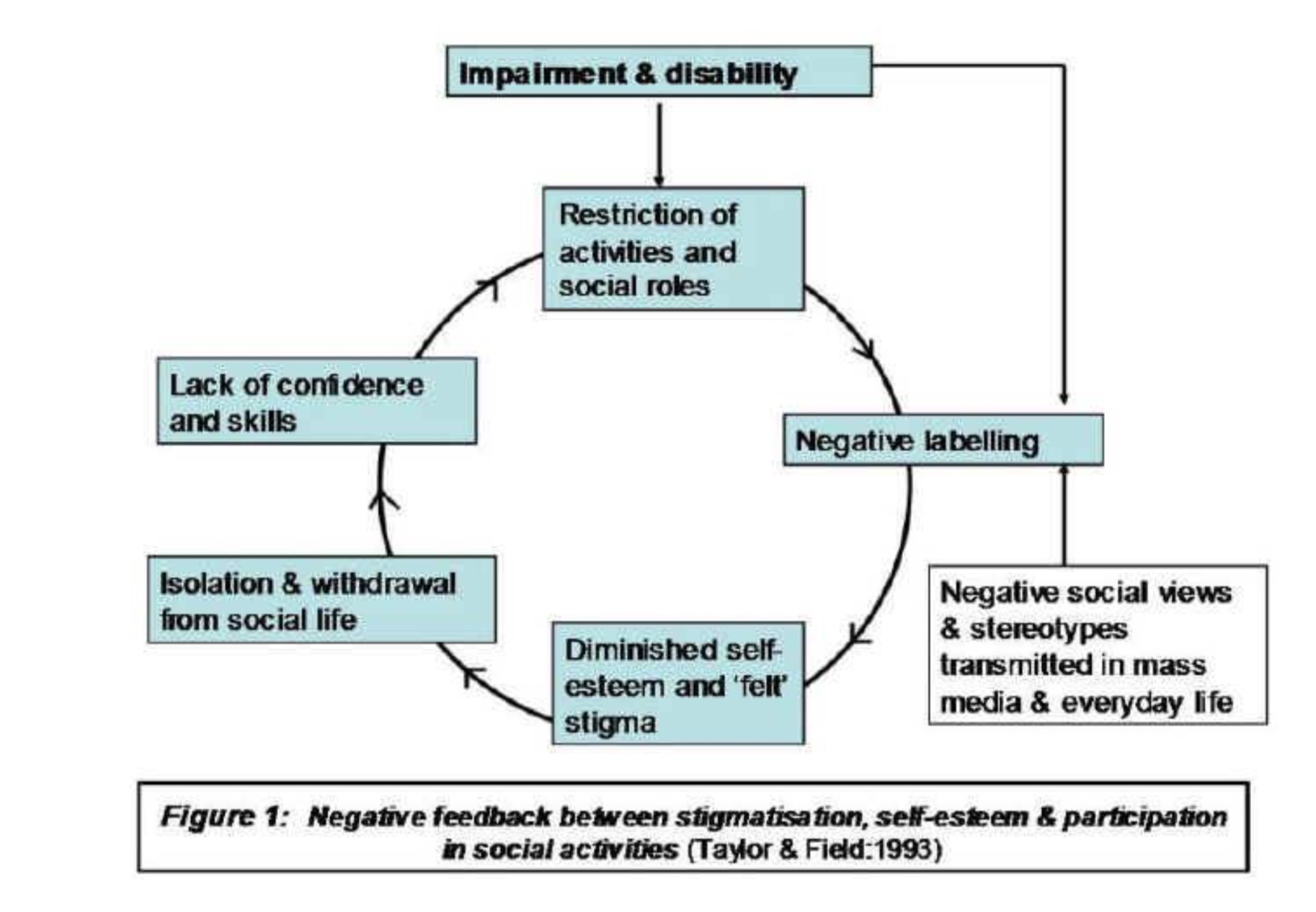
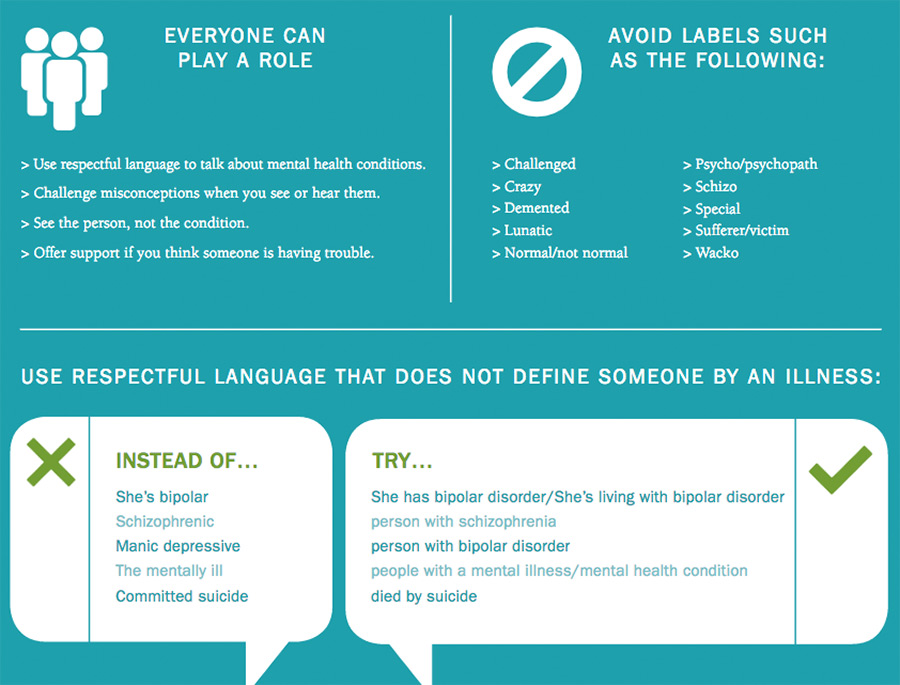








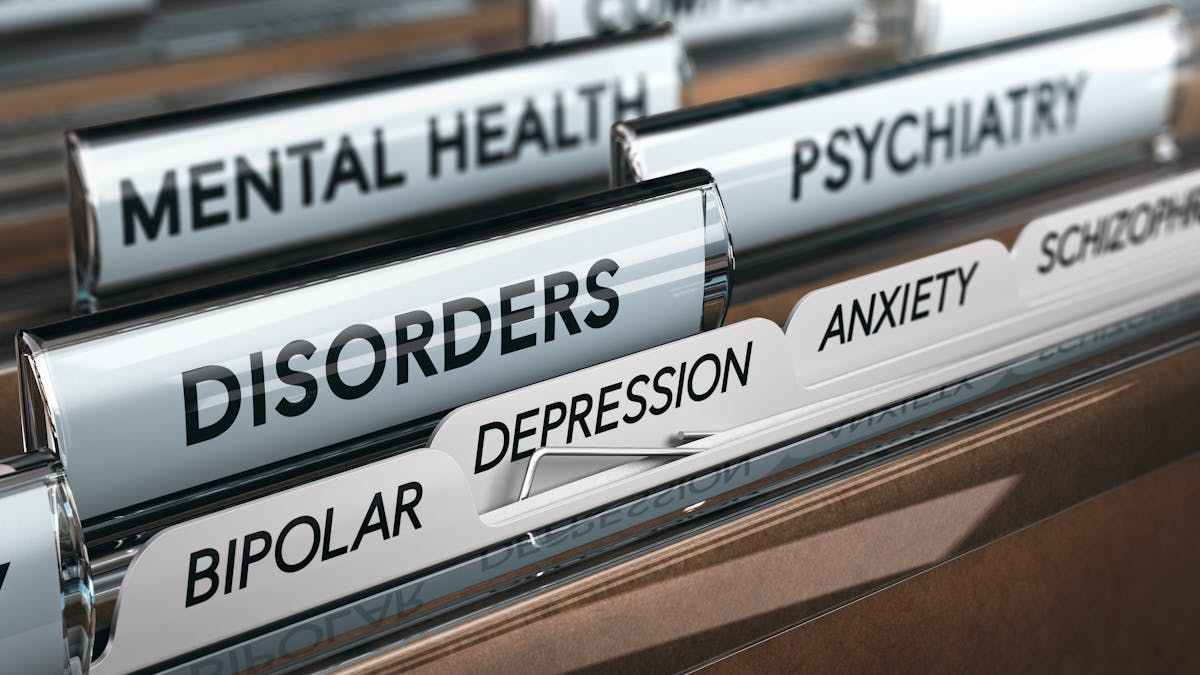






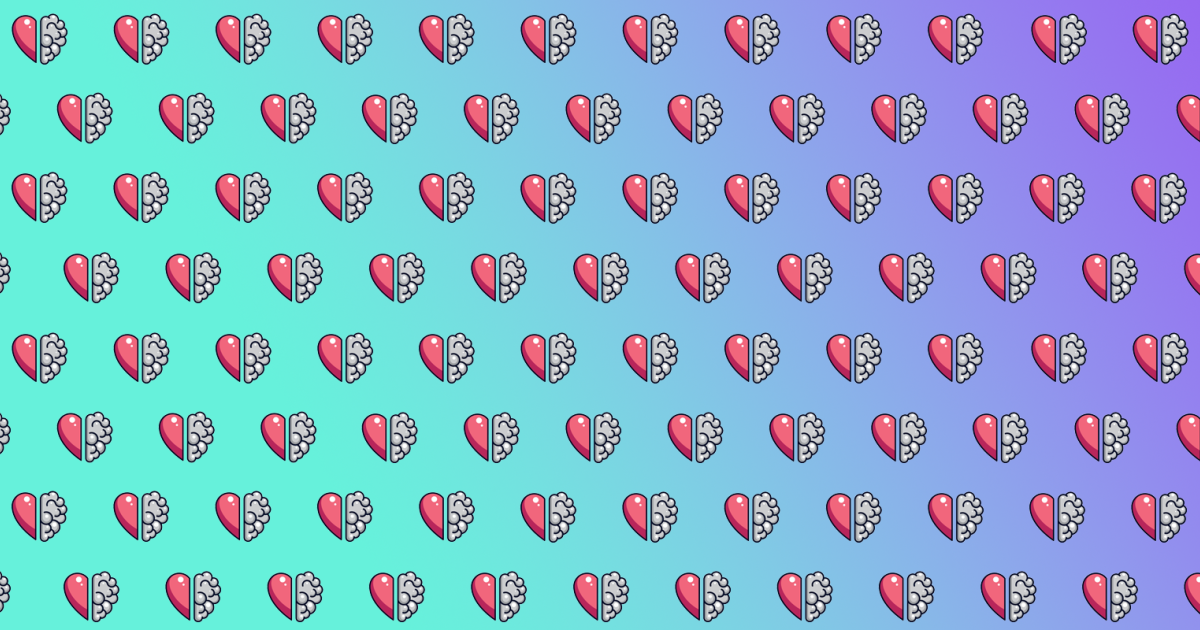

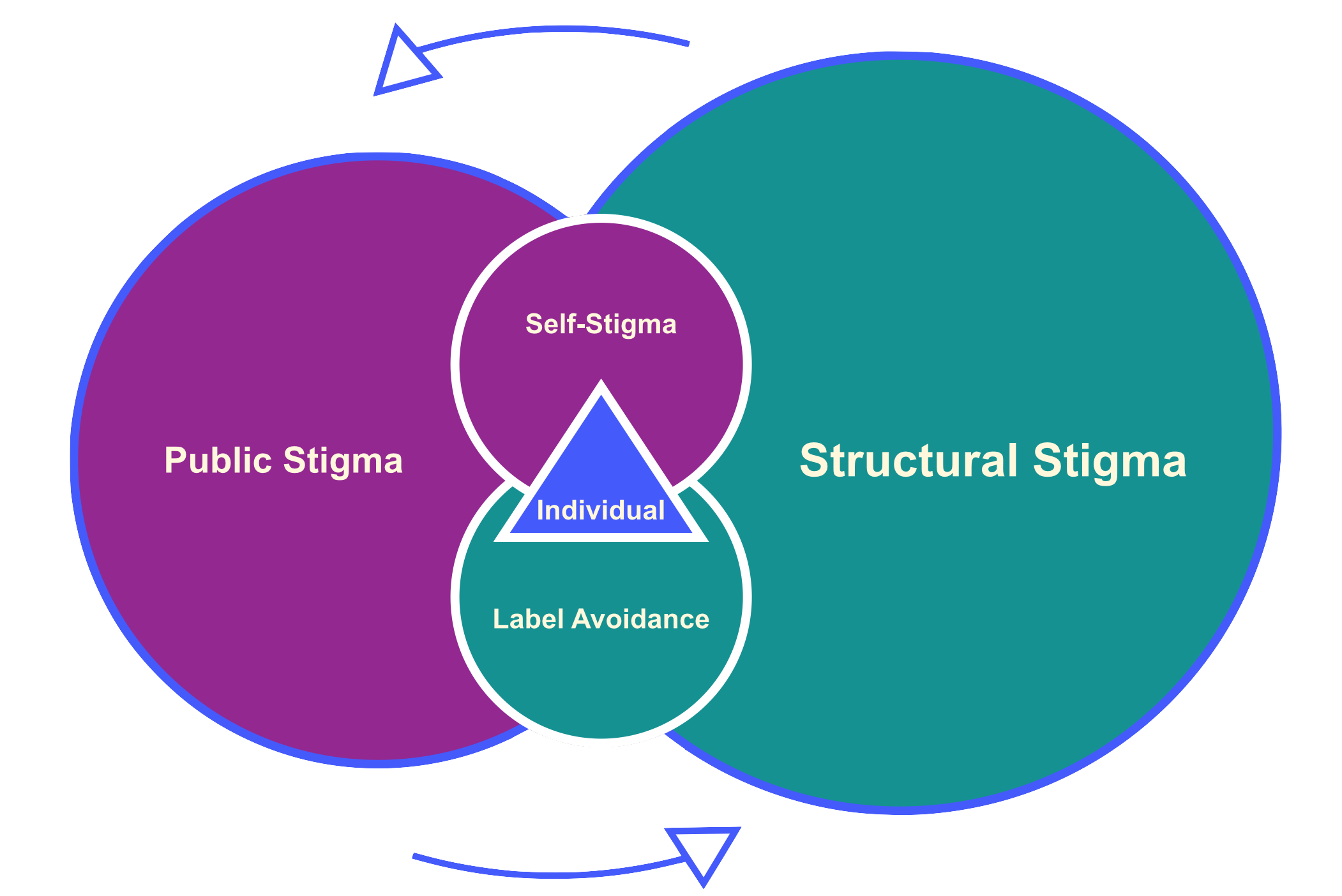

Post a Comment for "43 mental health labels stigma"